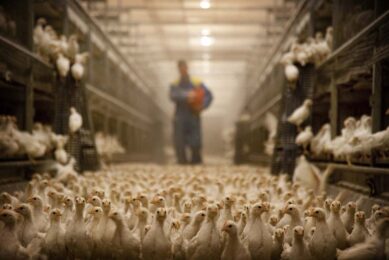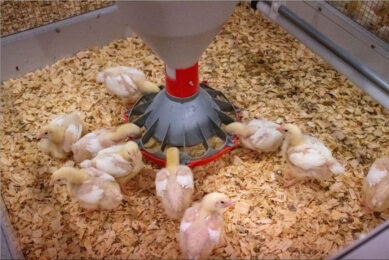A food policy for “Global Britain”

Vertical partnerships across the food chain involving farmers with a detailed understanding of data and closer links with UK universities and research institutes are vital for UK agriculture to thrive in a post-Brexit world.
Independent economic analyst Sean Rickard said there was a real opportunity for the UK agri-food industry to prosper in the new era but to do so would require a very clear and determined strategic focus. The UK agri-food sector is the largest industrial sector, contributing £121bn (9.4%) to GDP. Though it supports the livelihoods of 4 million people, it has a trade deficit.
3 challenges
Outlining his “Rising to the Challenges: A Food Policy for Global Britain” report, Mr Rickard said the UK needed to meet 3 challenges:
- Improved competitiveness – combining productivity growth with the production of distinctive, value added products that meet the affordable demands of the burgeoning global middle classes, thereby improving the trade balance, self-sufficiency and food security;
- Increased sustainability – ensuring that operations in becoming more productive not only reduce pollution, including greenhouse gases, but also the consumption of scare natural capital;
- Enhanced standards – increasing animal welfare but also the safety of food and farming operations, the working conditions and careers for all engaged in the industry.
Mr Rickard said the UK needed to be more competitive internationally, citing the Dutch food and farming industry, with distinctive, value-added food products are produced in a super-efficient farm sector.
Way forward
Sustainable agriculture was the way forward, he argued, citing the need for a dramatic increase in natural resource productivity (more output per unit of land, water and energy), that could be achieved through technological advances, including agri-biotechnology and precision technology. This needed to be allied to greater technical efficiency – the ability for experienced and educated farmers and staff to make key decisions around adopting and applying new technologies while engaging in network relationships. Vertical partnerships could not be made overnight but took time to ensure there was a fair governance system for sharing information rewards and indeed risks of specific investment to create distinctive products.
 Generous funding for emission reducing poultry initiatives
Generous funding for emission reducing poultry initiatives
Transforming waste food into animal food using carbon cutting technology and insects has enabled one fly farming company to scoop a £5.9m award from UK Research and Innovation (UKRI).
Complex data and tech
The report was commissioned by KW Feeds, Trident and ABN. Danny Johnson, ABN Commercial Director (Compounds) said the farmer of the future needed to be well equipped to deal with complex data and technology, which was why the firm had consistently supported the National Farmers Union’s Poultry Industry Programme (PIP).The PIP initiative provides young poultry producers with the opportunity to gain a range of leadership skills and experience.
Richard Cross, commercial director KW Trident, said the poultry industry had been great at understanding what the industry needs but that other sectors were following suit. It was vital for university students to spend time on farms understanding the practical challenges facing farmers as well as getting out into schools to teach about food provenance and improving the attractiveness of the industry.













